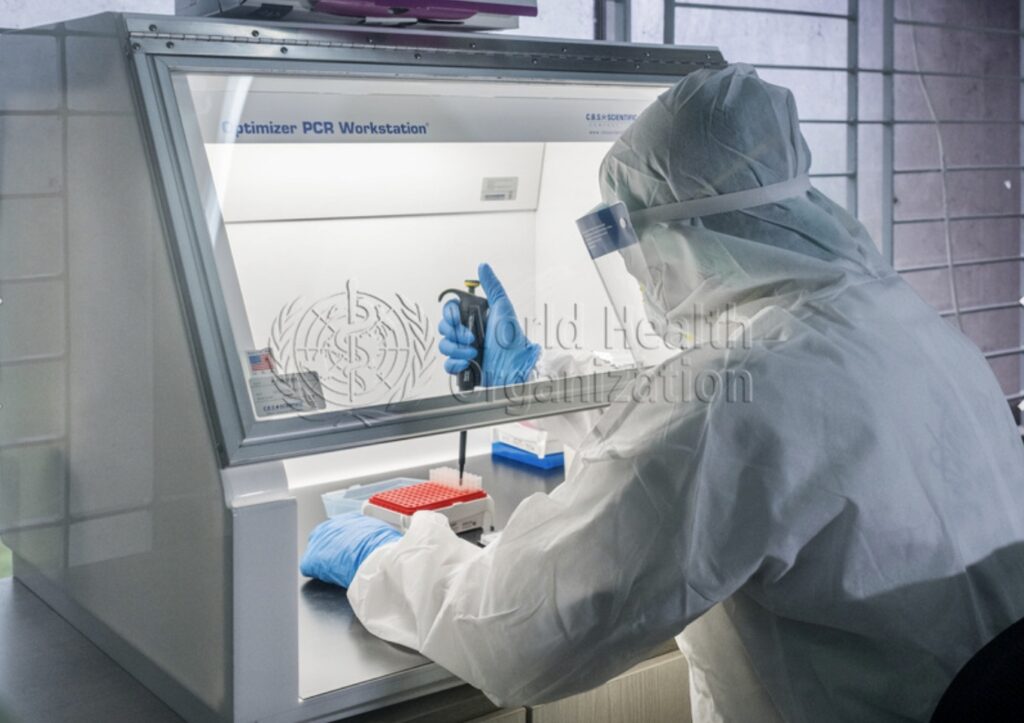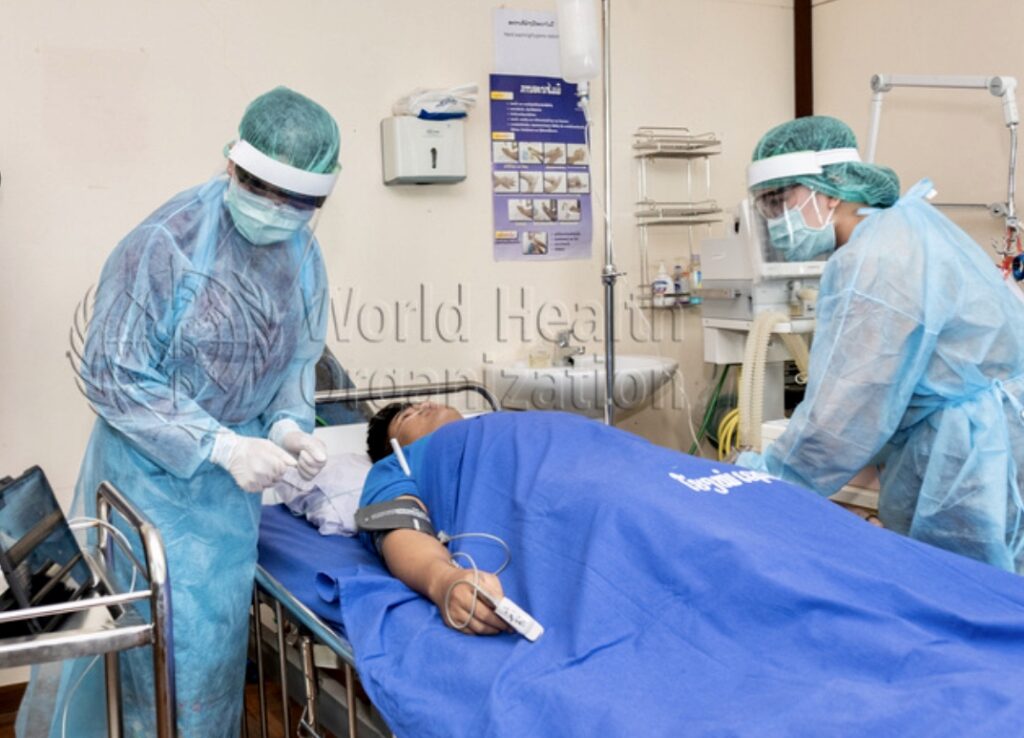By Henrylito D. Tacio
Photos courtesy of WHO and Wikipedia
The Food and Drug Administration (FDA) of both the United States and the Philippines have issued an emergency use authorization (EAU) for a vaccine for the prevention of coronavirus disease 2019 (COVID-19) caused by severe acute respiratory syndrome coronavirus 2 (SARS-CoV-2). The EAU allows Pfizer and BioNTech’s COVID-19 vaccine to be distributed in both countries.
“The FDA today is granting an emergency use authorization to Pfizer and BioNTech’s COVID-19 vaccine. It is decided that all conditions for an EAU are present and that the benefit of using the vaccine outweighs the known and potential risks,” said Philippines FDA Director-General Eric Domingo in a virtual press briefing last January 14.
Last year, on December 11, the United States also approved the Pfizer vaccine for EAU. “Today’s action follows an open and transparent review process that included input from independent scientific and public health experts and a thorough evaluation by the agency’s career scientists to ensure this vaccine met FDA’s rigorous, scientific standards for safety, effectiveness, and manufacturing quality needed to support emergency use authorization,” said US FDA Commissioner Stephen M. Hahn in a statement.
Both FDAs have determined that the Pfizer vaccine has met the statutory criteria for issuance of a EUA.
“The totality of the available data provides clear evidence that Pfizer-BioNTech’s COVID-19 vaccine may be effective in preventing COVID-19,” US FDA said. Domingo echoed the same approval, stating that the vaccine may be effective to “prevent, diagnose, or treat COVID-19).”
Unfortunately, the Pfizer vaccine is not for everyone. In the United States, the vaccine is administered “in individuals 16 years of age and older.” It is not given to those who had a severe allergic reaction after a previous dose of this vaccine and had a severe allergic reaction to any vaccine ingredient.

The vaccine, given as an injection into the muscle, is administered in two doses given three weeks apart. “If you receive one dose of the vaccine, you should receive a second dose of this same vaccine three weeks later to complete the vaccination series,” the US FDA explained.
Before you get yourself vaccinated, you need to tell the vaccination provider about all your medical conditions, including allergies, fever, have a bleeding disorder or taking a blood thinner, immunocompromised or on medication that affects your immune system, pregnant, or planning to become pregnant, breastfeeding or having received another COVID-19 vaccine.
A fact sheet circulated by US FDA, which this author obtained, listed some reported side effects of the Pfizer vaccine. These include injection site pain, tiredness, headache, muscle pain, chills, joint pain, fever, injection site swelling, injection site redness, nausea, feeling unwell, and swollen lymph nodes.
“There is a remote chance that the Pfizer vaccine could cause a severe allergic reaction,” the US FDA noted. “A severe allergic reaction would usually occur within a few minutes to one hour after getting a dose of the vaccine. For this reason, your vaccination provider may ask you to stay at the place where you received your vaccine for monitoring after vaccination.”
According to the fact sheet, signs of a severe allergic reaction can include:
- Difficulty breathing.
- Swelling of the face and throat.
- A fast heartbeat.
- A bad rash all over the body.
- Dizziness and weakness.
Although these “may not be all the possible side effects” of the Pfizer vaccine, “serious and unexpected side effects may occur.” Currently, the vaccine “is still being studies in clinical trials.”
Some people are worried about being injected with the vaccine since they feared they might get the dreaded virus. “The Pfizer-BioNTech COVID-19 vaccine does not contain SARS-CoV-2 and cannot give you COVID-19,” the US FDA assured.
People who get their first dose will be given a vaccination card as proof that you have already injected. “Remember to bring your card when you return” for your second dose of the vaccine, US FDA reminded.
The US FDA has also approved the Moderna COVID-19 vaccine for EAU for “individuals 18 years of age and older.”
The Geneva-based World Health Organization (WHO) stated on its website in December last year that there are “more than 50 COVID-19 vaccine candidates in trials.” So far, only three vaccines have been approved for EAU. Aside from Pfizer and Moderna vaccines, the other one is AstraZeneca.

“It is likely that additional candidates will be submitted to regulatory authorities for approval,” the WHO said in a statement. “There are many potential COVID-19 vaccine candidates currently in development.”
In the Philippines, there is so much ado about the COVID-19 vaccine. There are those who are against it, and there are those who care for it. Some argue the efficacy of some of the vaccines, while others are highlighting the prices of these vaccines.
“Vaccine confidence is taking a beating from non-scientific and non-peer-reviewed data circulating around,” decried Dr. Edsel Maurice T. Salvana, an award-winning infectious disease specialist and molecular biologist at the University of the Philippines-Philippine General Hospital (UP-PGH). “Science by press-release is the antithesis of true science.
“True science,” he explained, “is carefully looking at the data, analyzing and reanalyzing what’s going on, and deciding on how best to move forward. We need to act on data with cold objectivity, not speculate on motives or political intentions.”
According to Dr. Salvana, the efficacy of a vaccine is measured in many ways. “It can be prevention of any infection (both symptomatic and asymptomatic), disease (symptomatic infection), and severe disease,” he said. “Vaccines that prevent infection are transmission-blocking while vaccines that prevent severe disease are disease-modifying. Most COVID-19 vaccine trials measure both outcomes.”
What medical scientists are trying to find is an ideal vaccine that prevents any infection. “This is very difficult to measure since you would have to swab everyone periodically whether or not they present with symptoms,” he said. “So far, only the Moderna trial has attempted this, and while their clinical efficacy is 94%, the transmission-blocking efficacy seems t be only about 2/3 effective – which is excellent but less than the clinical efficacy.”
Each COVID-19 vaccine currently available will be judged on its ability to prevent infection, its ability to prevent clinical disease, and its ability to prevent severe disease. “A vaccine that has unknown ability to prevent transmission, 62% ability to prevent clinical disease, but 100% ability to prevent severe disease is still very useful,” Dr. Salvana pointed out. “Don’t believe me? These exact numbers are the efficacy numbers for the Astra vaccine which has been approved in Europe.”
On Sinovac (a vaccine from China), Dr. Salvana wrote: “Whatever the final numbers for Sinovac (we’ve seen 50%, 78% to 91% in media so far, and 100% for prevention of severe disease), we need to review on data on prevention of infection, disease and severe disease.
“If this vaccine prevented only 50% of clinical disease but prevent 100% of severe disease, I would take it,” he stressed. “Remember, Pfizer is 95% clinically effective but only 89% effective for severe disease – this is great data, make no mistake. This is why every country will need to have real experts review the data for the FDA before considering use.”
With all the fuss going on, Dr. Salvana observed, “To undermine a vaccine even before we have full data and already declare it is useless without considering all outcomes is dangerous and will cost lives, especially if a vaccine that prevents severe disease is not used because it doesn’t prevent enough mild disease for people’s tastes.”
In conclusion, Dr. Salvana urged people to stop attacking vaccines. “The FDA and the vaccine expert panel will decide which vaccines will be useful to the Filipino people,” he said. “The most important thing is to prevent deaths, and any vaccine that can do this is more than welcome. Let’s stick to the science and ignore the noise.”

